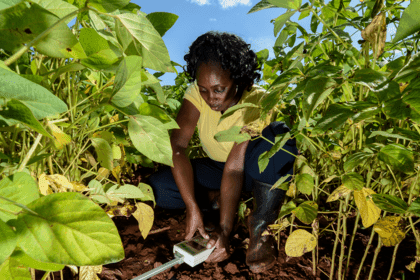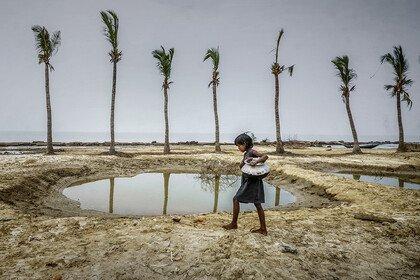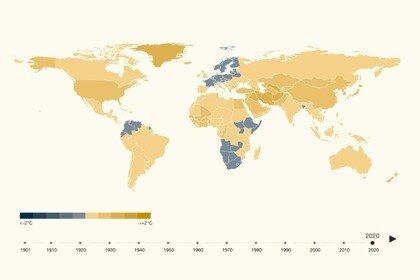
Combining climate and health data: challenges and opportunities for longitudinal population studies
Longitudinal population studies (LPS) track the health of large groups of people over time. They can offer a glimpse into how various influences – like environmental, socioeconomic and genetic – can come together to affect an individual’s health throughout their life.
This report looks at whether LPS could be a useful way to research the impact of climate change on health. It also describes why the potential of combining this specific type of health data with climate information is not being fully realised, and highlights how the research community could capitalise on this opportunity.
What’s inside
- What data and methods are required to link climate-related exposures to their health impacts?
- How can existing LPS as well as consortia of studies – linked to electronic health records and to routinely collected climate data – be used for this purpose?
- Recommendations for how to capitalise and improve on existing datasets
- a conceptual framework for how climate and health data can be linked to address specific research questions
- short-, medium- and long-term recommendations for how to advance the field.
Who this is for
- Researchers interested in understanding the impact of climate on health
- Funders supporting work in the field of climate impacts on health
- Longitudinal population study owners assessing whether to integrate climate and weather data into their data resource
- Climate researchers assessing how well-placed existing climate data is to capture the most relevant impacts of climate change on health.
Key findings
Climate changes across a wide range of temporal and spatial scales, from hours to centuries and from streets to continents. As such, more investment is needed to carry out further research on climate and longitudinal population data. Particularly, to inform our understanding of how best to adjust existing data and design new LPS to support climate and health research.
This report identifies challenges that need to be addressed to achieve this aim.
Challenges
- It is unclear whether current climate data is relevant to understanding the health impacts of climate. To find out how climate-induced natural disasters impact health, we need strategic data collection after an event to compare with an established baseline. For long-term climate trends, we likely need multi-generational information.
- Spatial scale must be addressed. Climate observations are collected at multiple fixed physical spaces like weather stations. This means variations between sparsely located stations must be modelled and are therefore less certain. Changes must be applied to account for this.
Opportunities
- Find out where it is feasible to answer research questions on the impacts of climate change on human health using LPS.
- Commission selected groups to consider how they could reorient some of their work towards climate-health research.
- Advocate to the World Meteorological Organization for the inclusion of the health sector as a priority user for the services of national meteorological agencies.
- Propose meteorological data and services requirements to address climate health.
This report and its recommendations serve as an important step in developing a vision for the Wellcome Trust’s Climate and Health agenda.
Downloads
Contact us
For more information, contact the following:
- Bilal Mateen, Clinical Technology Lead, at ContactDataForScienceAndHealth@wellcome.org
- Bruna Galobardes, Senior Research Manager, at B.Galobardes@wellcome.org
- Madeleine Thomson, Head of Climate Impacts, at M.Thomson@wellcome.org


